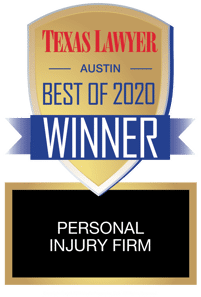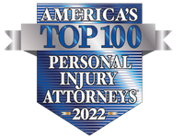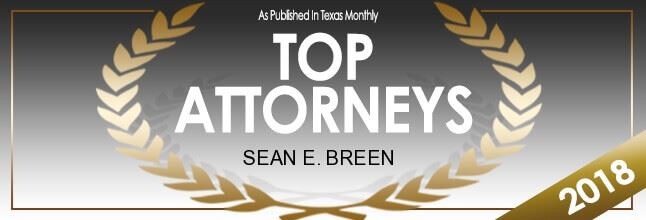Golf Cart & Utility Vehicle Accident Attorneys in Austin
Assisting Injured Involved in Accidents
Every year, approximately 15,000 golf cart accidents result in injuries that require medical attention. Golf carts and other types of utility vehicles typically lack the standard protections—such as doors, seatbelts, and airbags—that normal passenger vehicles have. Because of this, even relatively minor accidents can lead to major injuries.
At Howry Breen & Herman, we assist clients with personal injury claims for cases involving golf cart and utility vehicle accidents. Our attorneys are prepared to aggressively advocate for the full and fair compensation you deserve. If you or your loved one was injured in a golf cart or utility vehicle accident in Austin or the surrounding areas, contact our firm for a free case evaluation.
Call (512) 430-4844 or fill out an online contact form to get started.
Common Types of Utility Vehicles
Utility vehicles are designed to handle a range of tasks and environments, providing versatility and functionality. Here are some common types:
- Golf Carts: Designed for use on golf courses and similar environments, golf carts are compact vehicles with seating for 2-4 people. They can be powered by either electric batteries or gasoline engines.
- All-Terrain Vehicles (ATVs): Built for off-road adventures, ATVs are rugged vehicles with four wheels and high ground clearance. They are ideal for navigating rough terrains and trails.
- Utility Task Vehicles (UTVs): UTVs are durable vehicles equipped with a cargo bed, designed for heavy-duty tasks and off-road use. They offer seating for multiple passengers and can handle various attachments.
- Side-by-Side Vehicles: Similar to UTVs, side-by-sides are designed for off-road driving with side-by-side seating arrangements. They feature robust suspension systems and are used for both recreational and work purposes.
- Dune Buggies: Dune buggies are lightweight vehicles built for navigating sand dunes and rough terrain. They offer high performance with large tires and specialized suspension for sandy surfaces.
- Snowmobiles: Snowmobiles are designed for traveling over snow and ice, featuring skis in the front and a continuous rubber track in the rear for traction. They are used primarily in snowy and icy conditions.
How Do Golf Cart & Utility Vehicle Accidents Occur?
The most common type of golf cart accident occurs when the golf cart flips over. The same is true for all-terrain vehicles (ATVs). Because these are open-air vehicles that lack safety restraints, passengers can easily be thrown from a golf cart or ATV when it flips over. In some cases, a golf cart may flip over due to a defective, top-heavy design. In other instances, an accident can occur due to the negligence of another vehicle driver, motorist, or even pedestrian.
Some of the most common causes of golf cart accidents include:
- Speeding: Golf carts are not designed for high speeds, and driving them too fast can result in loss of control and accidents.
- Driver Inexperience: Many golf cart drivers are inexperienced or unfamiliar with how to operate the vehicle safely, leading to mistakes and collisions.
- Reckless Driving: This includes aggressive maneuvers such as sharp turns, sudden stops, and unsafe overtaking.
- Alcohol Use: Just like with other vehicles, driving a golf cart under the influence of alcohol or drugs impairs judgment and coordination, increasing the risk of accidents.
- Distracted Driving: Using a phone, adjusting controls, or engaging in other distractions while driving a golf cart can lead to accidents.
- Poor Maintenance: Neglecting regular maintenance and repairs can result in mechanical failures, such as brake malfunctions or tire blowouts, leading to accidents.
- Inadequate Lighting: Golf carts often lack proper lighting, which can make it difficult to see and be seen, especially in low-light conditions or at night.
- Terrain and Obstacles: Golf carts are often used on uneven or challenging terrain. Driving over rough terrain, curbs, or obstacles can cause the cart to tip over or lose control.
- Overloading: Exceeding the weight capacity of a golf cart by carrying too many passengers or heavy cargo can affect stability and handling.
- Poor Weather Conditions: Rain, fog, or ice can reduce traction and visibility, making it more difficult to control a golf cart.
- Inappropriate Use: Using golf carts on roads or areas not designated for them can increase the likelihood of accidents, especially in areas with high traffic or complex road conditions.
- Mechanical Failures: Issues such as battery failure, electrical problems, or worn-out tires can cause the golf cart to malfunction and lead to accidents.
Surprisingly, most golf cart accidents do not occur on the golf course. In fact, statistics show that many accidents occur when golf carts are used on or near public and private roads. This is especially true when golf carts are used for entertainment or driven by children.
How Our Firm Can Help
Golf cart and other utility cart collisions with other carts, pedestrians, and even large passenger vehicles can lead to severe, life-altering injuries. If you or your loved one was injured as a result of someone else’s careless, reckless, or negligent actions, you are likely facing massive medical bills, not to mention immense pain and suffering. You should not have to face these consequences on your own.
You can trust our firm to fight for you. Unlike many other attorneys, our Austin golf cart accident attorneys actually have the courtroom experience needed to aggressively fight for your rights. We have handled cases involving golf cart collisions with other golf carts, collisions with pedestrians and bicyclists, and golf cart rollover accidents. We have also assisted clients who were injured in accidents involving ATVs and other types of utility vehicles. With more than 25 years of litigation experience, we are well-equipped to help you navigate the legal process and fight for the full, fair recovery you are owed.
Contact our Austin golf cart and ATV accident attorneys today for a free, confidential case evaluation. Reach out to us online or call (512) 430-4844.

.png)





















